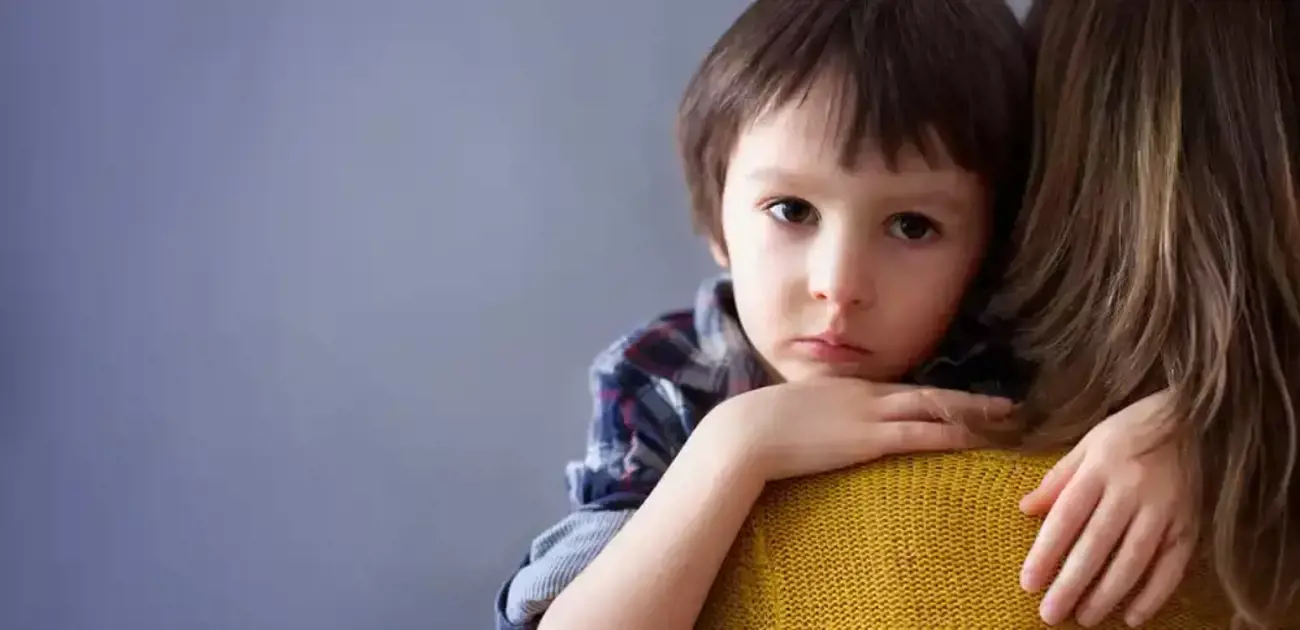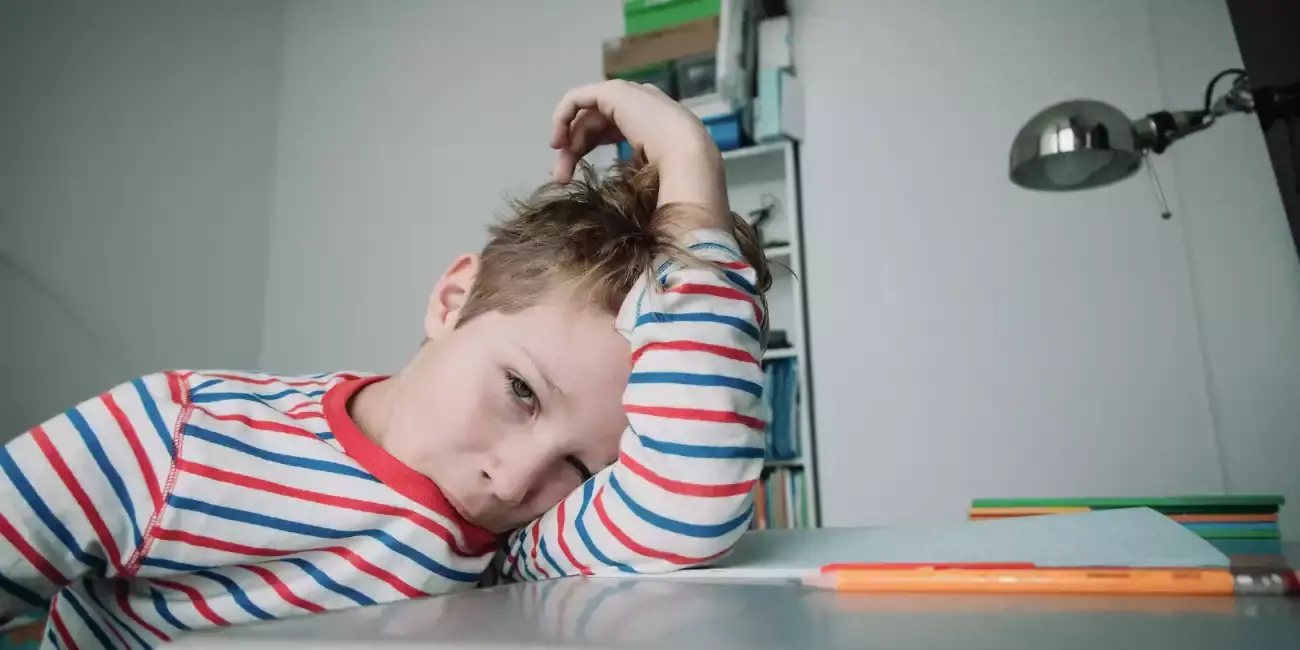Life isn’t always smooth sailing, and for young children, there can be lots of concerning things happening in their lives.
Starting at a new early learning service, welcoming a new sibling, witnessing family stress, experiencing a natural disaster, or being swept up in a global pandemic are just some of the things that may cause concerns in young children, and grown-ups aren’t immune from life’s challenges either.
In Australia, three million people are living with depression or anxiety, and in the early learning setting, educators and families can feel weighed down by worries.
Fortunately, help is available.
Be You is the national mental health in education initiative, funded by the Australian Government and delivered by Beyond Blue in collaboration with Early Childhood Australia and headspace.
To see what this initiative offers, and share practical ways for educators and families to support under fives’ mental health, we spoke with Judy Kynaston, General Manager of Be You for Early Childhood Australia.
How does the Be You initiative promote mental health and wellbeing in the early learning environment?
Be You helps educators to involve everyone at their early learning or school-age care service in supporting mental health, so the whole learning community can achieve the best possible outcomes.
Our vision is that every learning community is positive, inclusive and resilient – a place where every child, young person, educator and family can achieve their best possible mental health.
Central to Be You’s approach is building on what educators are already doing and responding to their learning community’s strengths and needs.
As part of this approach, Be You develops educators’ mental health literacy, so they can better support the wellbeing of children, themselves and their colleagues.
Educators can sign up and access free online interactive sessions and events, accredited professional learning, fact sheets, planning and implementation tools, and other resources (which can support early learning services to meet national, state and territory requirements that relate to mental health and wellbeing). If they sign up as a Be You Learning Community, rather than an individual educator, they get a range of additional resources and Be You Consultant support.
Why is it so important to strengthen the resilience of children, and what are some practical ways that educators and families can help to do this?
Resilience is the ability to manage life’s ups and downs and it’s key for developing positive mental health and wellbeing.
A child’s resilience is supported by a range of conditions, including their social and emotional skills and positive relationships.
The ability to be resilient develops over time. When a child feels supported, they are in a better position to draw on their social and emotional skills and be resilient.
Educators and families can help children build resilience by:
- Supporting the development of their social and emotional skills through intentional teaching opportunities and the challenges of risky play.
- Creating a supportive learning community, encouraging positive relationships between children, educators and their peers, and building educator-family partnerships.
- Empowering children to make decisions about things in their world that affect them and that they can have some control over.
- Educators collaborating with children to plan experiences in the learning environment and to help them see challenges or mistakes as learning opportunities.
- Educators noticing when a child may need extra support through observation, talking and listening to them and to their families, and sensitively connecting them with professional support.
COVID-19 has created uncertainty and worry for all ages. What can educators and parents do to support under fives’ wellbeing during the pandemic?
Children may experience considerable disruptions to their daily lives during the pandemic due to lockdowns or for other reasons.
It is important for educators to maintain normal routines and rituals as much as possible, and to also consider how changes to the environment may affect children. Giving children notice of any changes that will occur in their day, or to their routines, or even within the environment, will lessen anxiety.
Educators may consider reading familiar stories, singing favourite songs and playing games to ease transitions and assist with separation anxiety.
Maintaining and developing strong relationships with children is important as adults can help them navigate and explore their emotions at this time and assist them to self-regulate.
Play is also very important, because it allows children to make sense of their world by expressing and working through their feelings, even before they have the words to identify how they feel. Play gives children the opportunity to have fun, experience pleasure and happiness, and feel a sense of connection with others, so they feel valued.
At home, nurturing relationships and focusing on play is equally important for families and children; and during this pandemic, it’s important for educators and families to work together to support children’s mental health and wellbeing.
It's helpful for educators to:
Have open communication with families, sharing knowledge and resources.
Stay connected if children are home from their early learning service (e.g. by asking families to share photos, news and information from the service with their child).
Create a culture of kindness, which means looking out for everyone in the learning community through simple acts of kindness.
The Be You resource, Coronavirus (COVID-19): Supporting Early Learning Communities, has tips to help educators look after children and also themselves – which is really important.
How can educators and parents tell whether a child is struggling mentally as the pandemic continues?
Children are affected by changes in their life and world, and as a result of the disruptions during the pandemic, some changes in children’s behaviour may occur, including:
- Being withdrawn
- Being overly anxious
- Not eating
- Being moody, fearful and irritable
- Wanting more comfort, or
- Not being able to concentrate.
In this case, educators should have a conversation with the child’s family about this and ask how the child is at home. If the behaviour persists, educators should talk with the director of their service to see if a referral to a local professional support service should be considered.
If families are worried about their child’s behaviour at home, a conversation with their educator will help to establish how their child is going during their day in the early learning service.
Of course, the pandemic isn’t the only thing that can affect a child’s wellbeing, and if an educator is concerned about a child’s mental health and has observed changes in their behaviour, they can note these observations using the Be You BETLS Observation Tool and Mental Health Continuum.
When using these resources, educators should consider:
- Is the child’s behaviour developmentally normal?
- Is it normal for this child?
- Is it occurring frequently throughout the day?
- Has it persisted over several weeks?
- Is the behaviour affecting their daily experiences, such as how they are playing or not playing, or affecting their learning?
Educators should focus on what they actually observe, rather than on what they think, because it isn’t their role to diagnose a mental health issue.
Families are advised to seek the advice of a health professional (e.g. a GP) if behaviours persist, and it’s best for educators to talk to families and to their service director to see if a referral to a local professional support service is the right path forward.
The Be You Professional Learning Early Support domain has helpful modules for educators, and there’s a wealth of information for parents, children and all Australians at BeyondBlue.org. au.



































